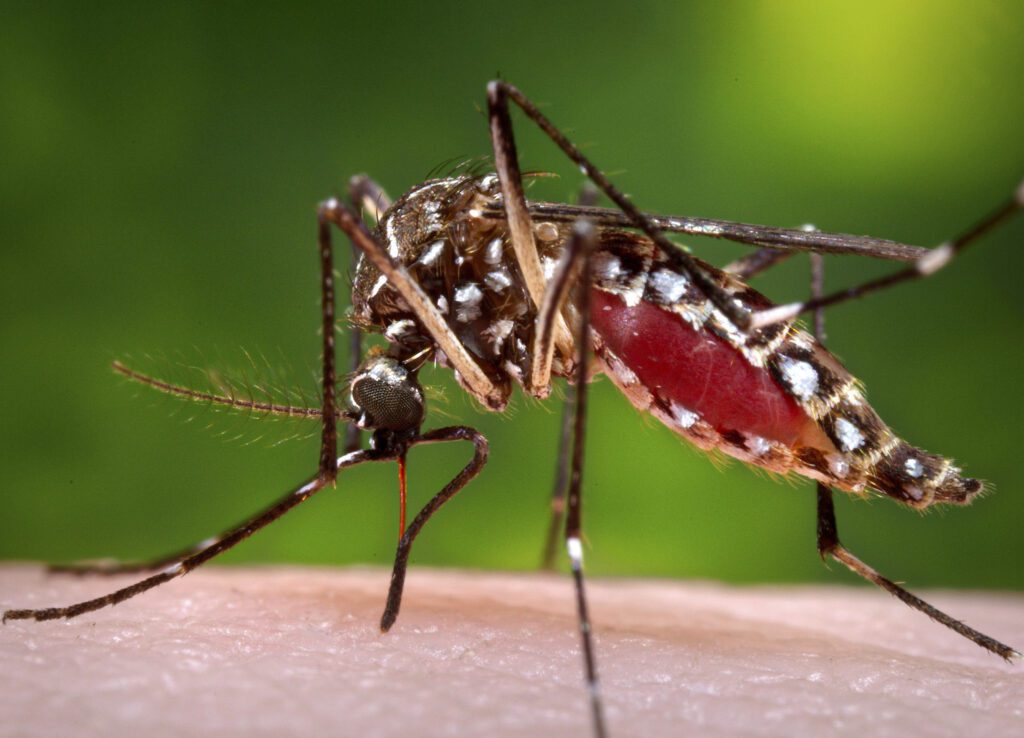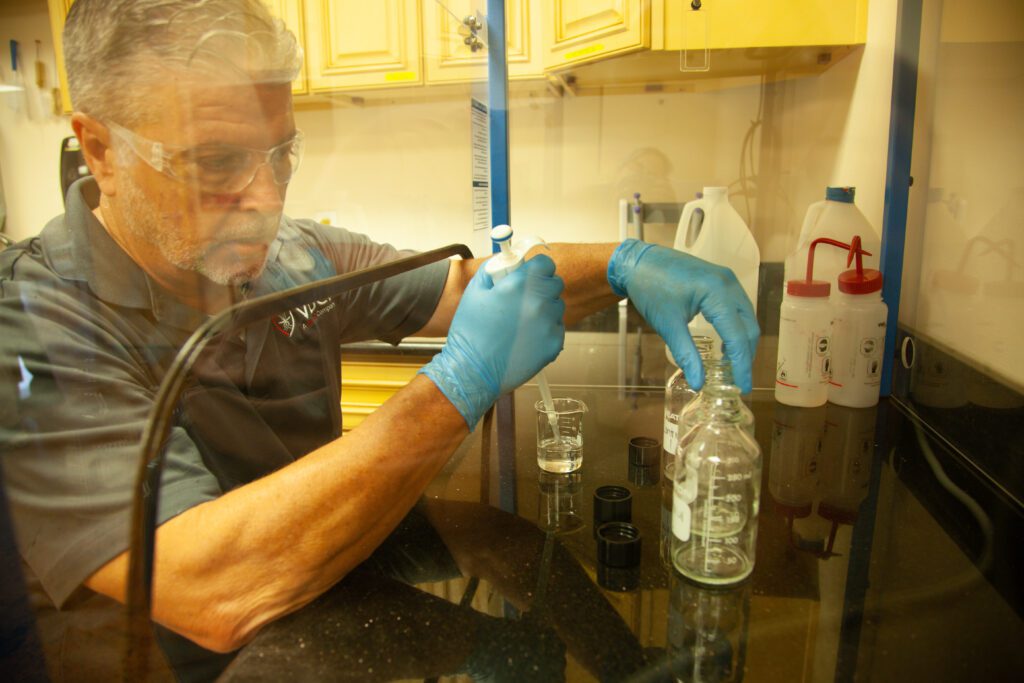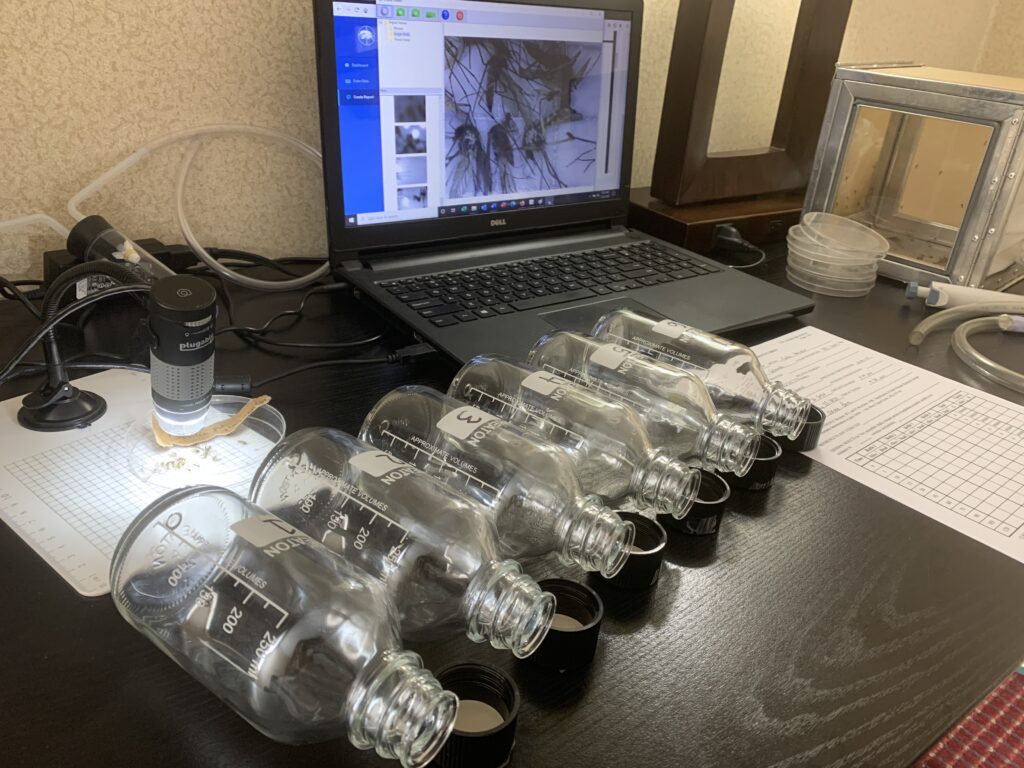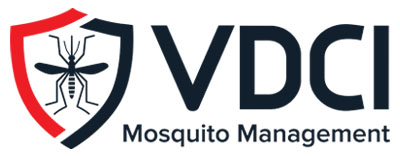How to Help Avoid Insecticide-Resistant Mosquitoes
In the ongoing battle against mosquito-borne diseases, an ongoing challenge has emerged that threatens to undermine public health efforts and the effectiveness of existing control strategies: insecticide resistance. As these insecticide-resistant mosquito populations grow, the tools and methods we rely on for mosquito management can become less effective, potentially leading to increased mosquito-borne disease transmission or nuisance populations. Understanding insecticide resistance, its causes, and its implications is crucial for executing successful mosquito management programs.

This is where Vector Disease Control International (VDCI) steps in. As a leader in mosquito management, VDCI is at the forefront of developing and implementing control strategies to help prevent insecticide-resistant mosquitoes. By leveraging surveillance and data to drive mosquito management efforts, conducting rigorous insecticide resistance testing on mosquito larvae and adults, and fostering community education and participation, VDCI aims to protect public health while preserving the efficacy of insecticides for future generations.
What Causes Mosquitoes to Become Insecticide Resistant?
There are many reasons why insecticide-resistant mosquitoes can develop. It often occurs when a single class of products is relied on to manage an outbreak or a product is overused within a particular area. Over time, this can lead to mosquito populations developing genetic mutations where insecticides intended to manage them become less effective. When a mosquito develops this genetic mutation, it can pass on this trait to its offspring. Over time, this mosquito population develops resistance and is no longer affected by the insecticide class used. This phenomenon makes insecticide resistance monitoring critical in all mosquito management programs.
In the United States alone, the agricultural sector applies over a billion pounds of pesticides annually, which includes insecticides that share similar active ingredients with those used in mosquito control programs. The Insecticide Resistance Action Committee (IRAC) has noted that insecticide-resistant mosquitoes can emerge when mosquitoes are exposed to these similar compounds through agricultural applications. The use of pesticides in agriculture, combined with insecticides used in mosquito management, underscores the importance of insecticide resistance monitoring.

Types of Insecticide Resistance
Even with the implementation of best practices, such as responsible product usage and continuous monitoring, it’s likely that some degree of insecticide-resistant mosquitoes will emerge due to natural variations within wild populations. Identifying the specific type of resistance that has developed is a crucial step in devising an effective management strategy to counteract it.
-
- Cross Resistance: When a mosquito becomes resistant usually to a similar class of insecticides due to the presence of one or more common resistance mechanisms.
- Multiple Resistance: When a mosquito becomes resistant to two or more insecticides due to multiple mechanisms of resistance.
- Target-Site Resistance: When a mosquito develops a point mutation within the insecticide target region, preventing the insecticide from acting effectively. These point mutations occur in the nervous system and involve the sodium channels, acetylcholinesterase and or GABA receptors.
- Behavioral Resistance/Avoidance: When mosquitoes alter their behavior to avoid exposure to specific products, such as not landing on surfaces that have been treated with insecticides.
- Cross Resistance: When a mosquito becomes resistant usually to a similar class of insecticides due to the presence of one or more common resistance mechanisms.

Impact on Integrated Mosquito Management
The most effective strategy for controlling mosquitoes and reducing the spread of mosquito-borne diseases is an Integrated Mosquito Management (IMM) program. However, insecticide-resistant mosquitoes pose a significant challenge to IMM efforts and public health. Once mosquitoes develop resistance, mosquito control measures, a cornerstone of IMM strategies, can lose their effectiveness. When applications are less effective, mosquito populations can rise, which in turn, raises the risk of disease transmission to humans. Diseases such as dengue fever, EEE, and West Nile virus, could see surges in case numbers as control measures fail to effectively suppress mosquito populations.
To effectively control adult and larval mosquito populations, ongoing monitoring and data collection should take place throughout a management program.
Testing for Insecticide-Resistant Mosquitoes
Various methods are available to evaluate how susceptible local mosquito populations are to control measures. Among these, the CDC Bottle Bioassays is the primary method for detecting insecticide-resistant mosquitoes. During this testing process, adult mosquitoes are placed in bottles coated with a diluted insecticide solution. These mosquitoes are then compared to a control group, enabling experts to gauge the pesticide’s effectiveness over time.
Other insecticide resistance tests include the WHO Tube test, which assesses adult mosquitoes, and the cup bioassay testing, which tests larvae against larvicides.

VDCI’s Fight Against Insecticide Resistance
VDCI is at the forefront of combating the growing challenge of insecticide-resistant mosquitoes. We recognize the critical importance of staying ahead of resistance patterns and prioritize regular testing of mosquito populations to help detect the early signs of insecticide resistance. This testing is not a mere formality but a crucial tool in our arsenal, enabling us to detect shifts in the effectiveness of various insecticides. The insights gained from these tests guide our mosquito control strategies and allow us to review the insecticides we deploy, how we apply them, and the timing and specific locations of treatments.
How Can The Public Help Prevent Insecticide-Resistant Mosquitoes?
In the fight against insecticide-resistant mosquitoes, there are several practical steps everyone can take to reduce insecticide resistance and protect themselves from mosquito-borne diseases. One effective approach is the elimination of mosquito breeding habitats. Mosquitoes lay their eggs in standing water, so by diligently dumping out any stagnant water around homes—such as in plant saucers, bird baths, and blocked gutters—citizens can significantly reduce breeding grounds.
Beyond these actions, educating oneself about mosquito-borne diseases and their prevention is crucial. Understanding the life cycle of mosquitoes, breeding habits, and the diseases they can carry equips individuals with the knowledge to implement more effective protective measures. This includes adopting practices such as wearing long-sleeved, light-colored clothing, avoiding the outdoors during peak mosquito activity, and applying EPA-approved mosquito repellents. By combining practical actions with science-backed strategies, citizens can help reduce the impact of insecticide-resistant mosquitoes and protect public health.
Contact Our Experts
Complete the form below or call us at 800-413-4445 to speak to an expert about your mosquito management needs.
 Since 1992, Vector Disease Control International (VDCI) has taken pride in providing municipalities, mosquito abatement districts, industrial sites, planned communities, homeowners associations, and golf courses with the tools they need to run effective mosquito control programs. We are determined to protect the public health of the communities in which we operate. Our mosquito control professionals have over 100 years of combined experience in the field of public health, specifically vector disease control. We strive to provide the most effective and scientifically sound mosquito surveillance and control programs possible based on an Integrated Mosquito Management approach recommended by the American Mosquito Control Association (AMCA) and Centers for Disease Control and Prevention (CDC). VDCI is the only company in the country that can manage all aspects of an integrated mosquito management program, from surveillance to disease testing to aerial application in emergency situations.
Since 1992, Vector Disease Control International (VDCI) has taken pride in providing municipalities, mosquito abatement districts, industrial sites, planned communities, homeowners associations, and golf courses with the tools they need to run effective mosquito control programs. We are determined to protect the public health of the communities in which we operate. Our mosquito control professionals have over 100 years of combined experience in the field of public health, specifically vector disease control. We strive to provide the most effective and scientifically sound mosquito surveillance and control programs possible based on an Integrated Mosquito Management approach recommended by the American Mosquito Control Association (AMCA) and Centers for Disease Control and Prevention (CDC). VDCI is the only company in the country that can manage all aspects of an integrated mosquito management program, from surveillance to disease testing to aerial application in emergency situations.

